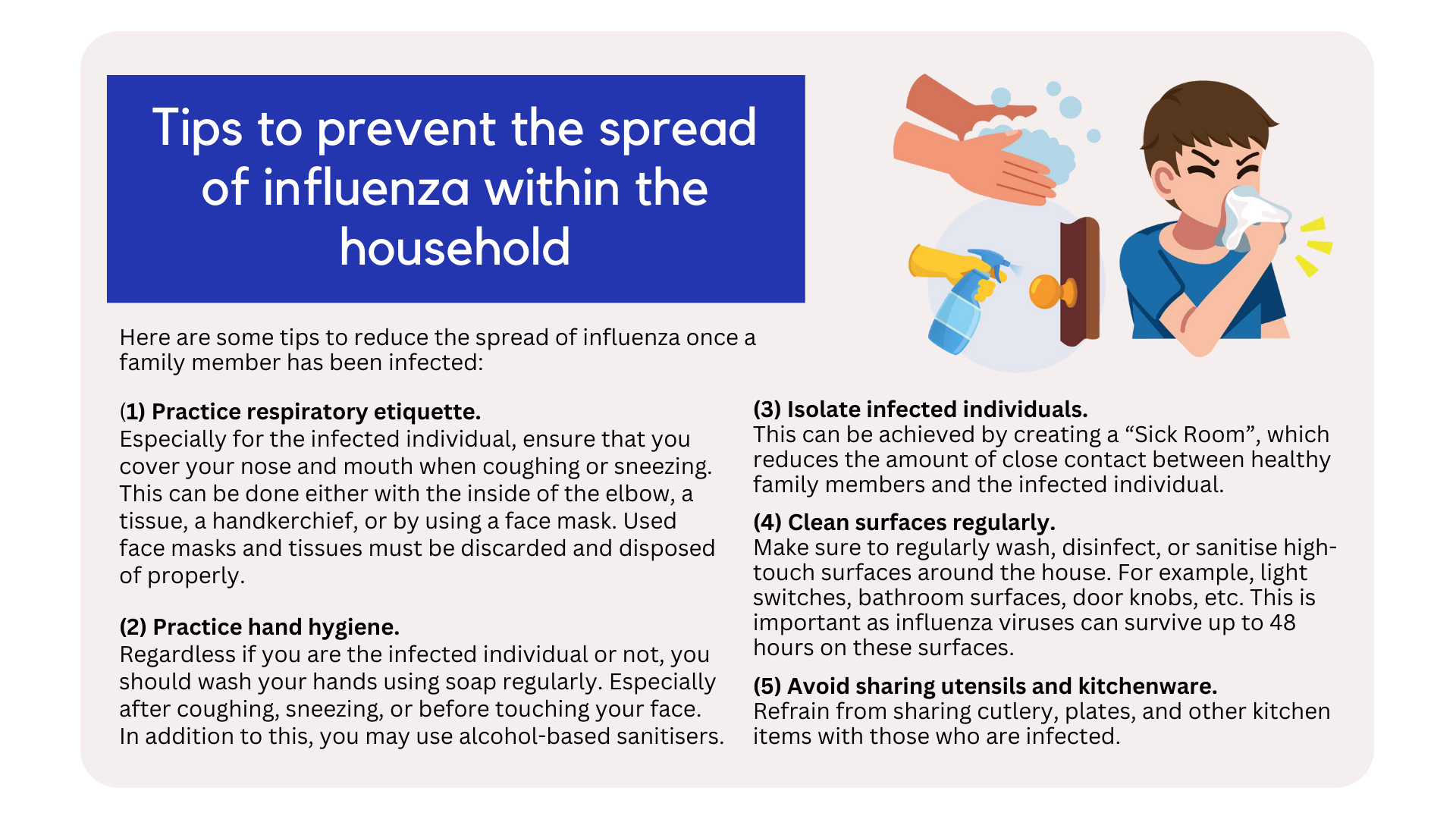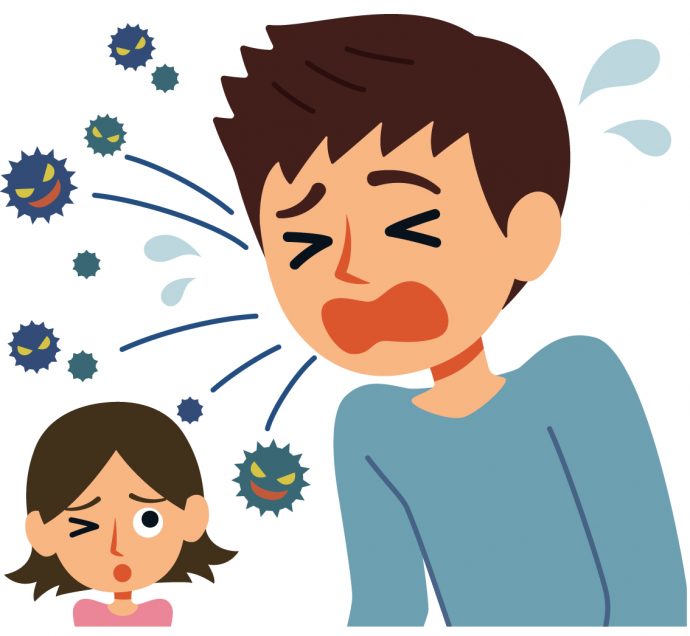When a family member comes down with the flu (influenza), it is often the case that unaffected members continue with their daily routines. However, it’s crucial for families to recognise that influenza can easily spread, and even pose risks to some people within the family. We need to equip ourselves with the knowledge about the preventive measures required to protect our family from influenza.
How does influenza spread?
To understand why it’s important to prevent the spread of influenza in our homes and how we can do so, we must first know how the virus spreads.
The influenza virus mainly spreads through respiratory droplets. When an infected person coughs or sneezes, they release respiratory droplets that carry the virus. These droplets can then get inhaled by another person and infect them too.
Another way the virus can spread is by touching surfaces in our homes (like doorknobs, light switches, and kitchen counters) that have been contaminated with respiratory secretions from an infected individual. If someone else touches these surfaces, and then touches their mouth or nose, the virus can enter their body and infect them too.
Why is it important to prevent the spread of influenza within the household?
Particularly in Asian countries, the presence of multigenerational families and households is common (a household containing grandparents, parents, and children). This can have major healthcare implications, as a single household can contain numerous vulnerable individuals who are likely to develop severe disease, require hospitalisation, or even cause death.
Examples of those at high risk:
- Young children below 5 years old (especially those below 2 years old)
- Elderly individuals above the age of 65
- Individuals with chronic conditions (e.g. asthma, chronic lung disease, weakened immune systems)
Influenza may cause severe complications in these vulnerable groups. For example, elderly people may suffer from complications such as pneumonia, ear infections, inflammation of the heart or brain, and worsening of existing chronic conditions. Therefore, it is important for families to take extra precautions when there is a confirmed case of influenza within the household, to prevent the virus from spreading and putting their loved ones at risk.

Prevention Over Cure
One of the best preventive measures we have to protect against influenza is vaccination. It is recommended that family members get their influenza shot annually, especially those who are considered at high-risk (e.g. young children, elderly, or those with existing chronic conditions). In Malaysia, the influenza shot can be given as early as 6 months of age.
In conclusion, it is important for families to be aware of the dangers of flu infections within the household. Taking proper preventive steps when someone is infected and implementing measures to prevent infection in the first place are essential for protecting the well-being of everyone at home.






